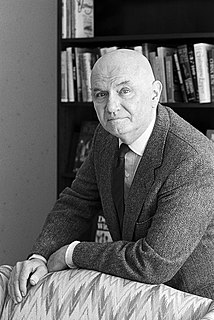A Quote by John Stuart Mill
The peculiarity of the evidence of mathematical truths is that all the argument is on one side.
Quote Topics
Related Quotes
There are several kinds of truths, and it is customary to place in the first order mathematical truths, which are, however, only truths of definition. These definitions rest upon simple, but abstract, suppositions, and all truths in this category are only constructed, but abstract, consequences of these definitions ... Physical truths, to the contrary, are in no way arbitrary, and do not depend on us.
I imagine that whenever the mind perceives a mathematical idea, it makes contact with Plato's world of mathematical concepts... When mathematicians communicate, this is made possible by each one having a direct route to truth, the consciousness of each being in a position to perceive mathematical truths directly, through the process of 'seeing'.
The compelling argument is on the side of homosexuals. We're Americans. We just want to be treated like everybody else. That is a compelling argument. And to deny that, you've got to have a very strong argument on the other side. And the other side hasn't been able to do anything but thump the Bible ... I support civil unions, I always have. All right, the gay marriage thing, I don't feel that strongly about it one way or the other.
A delusion that encourages belief where there is no evidence is asking for trouble. Disagreements between incompatible beliefs cannot be settled by reasoned argument because reasoned argument is drummed out of those trained in religion from the cradle. Instead, disagreements are settled by other means which, in extreme cases, inevitably become violent. Scientists disagree among themselves but they never fight over their disagreements. They argue about evidence or go out and seek new evidence. Much the same is true of philosophers, historians and literary critics.
Mathematical demonstrations being built upon the impregnable Foundations of Geometry and Arithmetick are the only truths that can sink into the Mind of Man, void of all Uncertainty; and all other Discourses participate more or less of Truth according as their Subjects are more or less capable of Mathematical Demonstration.
Even if the absence of evidence for a given god were not evidence of its absence, it would still be evidence that the belief in that god is unreasonable. That's the only proposition that any atheist of any kind has to demonstrate in order to win the argument. Because anything beyond that... is just having fun.
If the system exhibits a structure which can be represented by a mathematical equivalent, called a mathematical model, and if the objective can be also so quantified, then some computational method may be evolved for choosing the best schedule of actions among alternatives. Such use of mathematical models is termed mathematical programming.








































